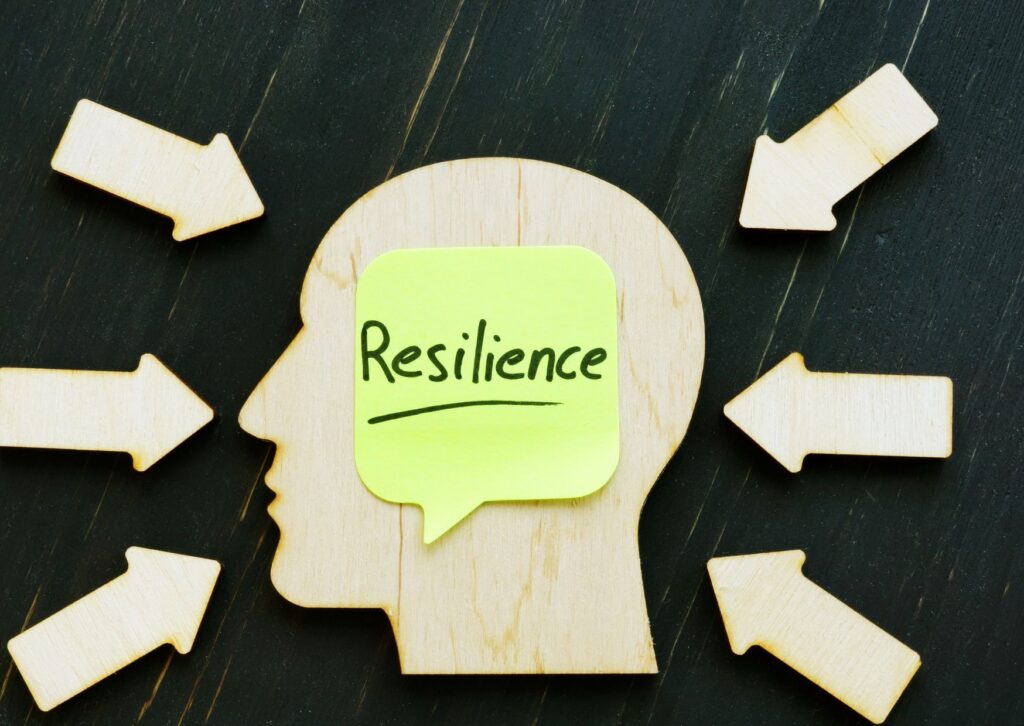The Role of Personal Growth for Managers
Personal growth for managers is crucial for anyone in a management.
In our fast-paced world, it’s easy to get caught up in the hustle and bustle of work, forgetting that as managers, we’re not just responsible for meeting targets and deadlines.
We’re also responsible for people – our team members.
And to lead them effectively, we need to be the best versions of ourselves.
That’s where personal growth comes into play.
In this blog, we’ll explore why personal growth is so important for managers, how it can improve your life and enhance your managerial skills.
We’ll also delve into key areas of personal growth and provide practical steps you can take to foster your own development.
Contents
Why is Personal Growth Important for Managers?
How can Personal Growth Improve a Manager’s Life?
How can Personal Growth Enhance Managerial Skills?
10 Key Areas of Personal Growth for Managers
10 Steps for Managers to Start Their Personal Growth Journey

Why is Personal Growth Important for Managers?
Personal growth is not just a buzzword, it’s a vital component of effective leadership. But why is it so important for managers?
Self-awareness
Personal growth fosters self-awareness.
It helps you understand your strengths, weaknesses, and areas where you can improve.
As a manager, this awareness is crucial.
It allows you to leverage your strengths, work on your weaknesses, and become a more effective leader.
Adaptability
The business world is ever-changing.
New technologies, market trends, and workforce dynamics are constantly emerging.
Personal growth equips managers with the adaptability to navigate these changes successfully.
It encourages a mindset of continuous learning and openness to new ideas.
Empathy
Personal growth often involves developing emotional intelligence, which includes empathy.
Empathetic managers understand their team members’ perspectives and emotions, leading to stronger relationships, better communication, and a more harmonious work environment.
Resilience
Personal growth helps build resilience.
It equips managers with the mental and emotional fortitude to handle stress, overcome challenges, and bounce back from setbacks.
This resilience is invaluable in the high-pressure world of management.

Inspiration
Managers who prioritise personal growth inspire their teams to do the same.
They lead by example, fostering a culture of continuous learning and improvement within their organisation.
In a nutshell, personal growth is a key ingredient in the recipe for managerial success.
It’s not just about becoming a better manager, it’s about becoming a better person.
How can Personal Growth Improve a Manager’s Life?
Personal growth isn’t just about becoming a better manager, it’s about improving your overall quality of life.
Let’s explore how focusing on personal growth can have a positive impact on various aspects of a manager’s life.
Work-Life Balance
Personal growth often involves learning to manage time effectively and set healthy boundaries.
This can lead to a better work-life balance, reducing stress and preventing burnout.
Improved Relationships
The skills you develop through personal growth—such as communication, empathy, and emotional intelligence can enhance your relationships both inside and outside the workplace.
Increased Confidence
As you grow and develop new skills, you’ll naturally become more confident.
This confidence can improve your performance at work, but it can also spill over into other areas of your life, from social interactions to personal pursuits.

Greater Satisfaction
Personal growth can lead to a sense of accomplishment and fulfilment.
As you reach your goals and overcome challenges, you’ll feel more satisfied with your life and your work.
Better Health
By promoting a balanced lifestyle and reducing stress, personal growth can have a positive impact on your physical health.
Plus, many personal growth strategies like mindfulness and positive thinking can improve your mental health as well.
In short, personal growth can enhance a manager’s life in countless ways.
It’s not just about climbing the corporate ladder—it’s about creating a happier, healthier, more fulfilling life.

How can Personal Growth Enhance Managerial Skills?
Personal growth and managerial skills are two sides of the same coin.
As you grow personally, your managerial skills naturally evolve and improve.
Let’s take a closer look at how this happens.
Better Decision Making
Personal growth often involves developing critical thinking skills.
This can enhance your ability to make sound decisions, even in high-pressure situations or when dealing with complex problems.
Improved Communication
Personal growth can help you become a more effective communicator.
You’ll learn to express your thoughts clearly, listen actively, and handle difficult conversations with grace.
This can lead to better relationships with your team and more effective collaboration.
Increased Emotional Intelligence
Personal growth often involves developing emotional intelligence, which includes self-awareness, self-regulation, motivation, empathy, and social skills.
These qualities are invaluable for managers, helping you to understand and manage both your own emotions and those of your team.
Leadership Development
Personal growth can help you become a more effective leader.
You’ll learn to inspire and motivate your team, foster a positive work environment, and lead by example.

Conflict Resolution
Personal growth can equip you with the skills to handle conflicts effectively.
You’ll learn to navigate disagreements in a way that respects everyone’s perspectives and finds a solution that benefits the team as a whole.
Adaptability
Personal growth encourages a mindset of continuous learning and adaptability.
This can help you navigate changes in the business world, from new technologies to shifting market trends.
In essence, personal growth is a powerful tool for enhancing managerial skills.
It’s about becoming the best manager you can be, not just for your team, but for yourself as well.
10 Key Areas of Personal Growth for Managers
1. Self-Awareness
Self-awareness is about understanding your strengths, weaknesses, emotions, and motivations.
As a manager, this knowledge can help you leverage your strengths, work on your weaknesses, and understand how your emotions and motivations influence your decisions and interactions with your team.
It’s the foundation upon which all other personal growth is built.
2. Emotional Intelligence
Emotional intelligence involves managing your own emotions, understanding others’ emotions, and interacting effectively with different types of people.
It’s crucial for building strong relationships with your team, handling conflicts, and fostering a positive work environment.
Managers with high emotional intelligence are often more effective and respected by their teams.
3. Communication Skills
Effective communication is more than just speaking clearly, it also involves listening actively, expressing your thoughts and ideas effectively, and understanding non-verbal cues.
Good communication can prevent misunderstandings, build trust, and foster collaboration within your team.
4. Leadership Skills
Leadership is about more than just managing a team, it’s about inspiring and motivating your team, making tough decisions, and leading by example.
By developing your leadership skills, you can create a vision for your team, guide them towards achieving their goals, and foster a culture of respect and cooperation.
5. Time Management
Time management is about prioritising tasks, setting goals, and making the most of your time.
Effective time management can reduce stress, increase productivity, and improve your work-life balance.
It’s a crucial skill for managers, who often have to juggle multiple tasks and responsibilities.

6. Adaptability
In today’s fast-paced business world, the ability to adapt to changes and learn new skills is crucial.
Adaptability can help you navigate new technologies, shifting market trends, and changing workforce dynamics.
It fosters a mindset of continuous learning and growth.
7. Conflict Resolution
When managing a team, conflict is inevitable.
Learning conflict resolution skills can help you navigate disagreements effectively, ensuring that all perspectives are heard and a solution is found that benefits the team as a whole.
It can lead to a more harmonious and productive work environment.
8. Critical Thinking
Critical thinking involves analysing situations, making sound decisions, and solving problems effectively.
It’s a crucial skill for managers, who often have to make decisions under pressure and solve complex problems.
Critical thinking can lead to better decision-making and more effective problem-solving.
9. Stress Management
Stress is a common part of managerial roles.
Learning to manage stress effectively can improve your mental health, increase your productivity, and make you a more effective leader.
It can also set a positive example for your team, encouraging them to manage their own stress effectively.
Managers can also help their teams manage stress by organising wellbeing workshops around coping with stress.

10. Empathy
Empathy is about understanding and sharing the feelings of others.
It can improve your relationships with your team, enhance your leadership abilities, and foster a culture of understanding and respect within your team.
Empathetic managers are often more effective and respected by their teams.
Each of these areas is a crucial part of personal growth for managers.
By focusing on these areas, you can become a more effective, respected, and successful manager.
10 Steps for Managers to Start Their Personal Growth Journey
1. Set Clear Goals
Personal growth begins with clear, measurable goals.
What areas do you want to improve in?
What skills do you want to develop?
By setting specific goals, you create a roadmap for your personal growth journey.
These goals give you a sense of direction and help you measure your progress.

2. Seek Feedback
Feedback is a powerful tool for personal growth.
It provides an outside perspective on your strengths and weaknesses, your performance, and your potential areas for improvement.
Don’t hesitate to ask your team, your peers, or even your superiors for feedback.
Remember, constructive criticism is not a personal attack, it’s an opportunity for growth.
3. Invest in Learning
Personal growth is a lifelong learning process.
Whether it’s attending workshops, reading books, taking online courses, or simply staying updated with industry trends, continuous learning is key.
By investing time and resources in learning, you’re investing in your own personal growth.
4. Practice Mindfulness
Mindfulness is about staying present and aware.
It can help you improve your self-awareness, manage your emotions, and reduce stress.
Simple mindfulness techniques, such as meditation or deep breathing, can be incorporated into your daily routine.
Over time, these practices can have a profound impact on your personal growth.
5. Develop a Growth Mindset
A growth mindset is the belief that you can develop your abilities through dedication and hard work.
It’s about embracing challenges, persevering in the face of setbacks, and seeing effort as the path to mastery.
By developing a growth mindset, you open the door to continuous learning and improvement.
6. Take Care of Your Health
Your physical health plays a crucial role in your mental and emotional wellbeing.
Regular exercise, a balanced diet, and adequate sleep can boost your mood, energy levels, and overall health.
By taking care of your health, you’re creating a strong foundation for your personal growth.
7. Find a Mentor or Coach
A mentor or coach can provide valuable guidance and support on your personal growth journey.
They can share their experiences, provide feedback, and help you navigate challenges.
Whether it’s a senior colleague, an executive coach, or a respected individual in your field, a mentor can be a powerful catalyst for personal growth.

8. Reflect Regularly
Reflection is a key part of personal growth.
It’s about taking time to look back on your experiences, assess your performance, and identify areas for improvement.
Regular reflection can provide valuable insights and help you stay focused on your personal growth goals.
9. Practice Empathy
Empathy is about understanding and sharing the feelings of others.
By practicing empathy, you can improve your relationships, enhance your communication skills, and become a more effective leader.
It’s a key component of emotional intelligence and a crucial skill for any manager.
10. Stay Adaptable
The business world is constantly changing.
To keep up, you need to be adaptable.
This means being open to new ideas, willing to learn new skills, and ready to adjust your strategies as needed.
Adaptability is a key skill for personal growth and a crucial trait for successful managers.
Remember, personal growth is a journey.
It takes time, effort, and patience. But with these practical steps, you can foster your own personal growth and become a more effective and successful manager.
If you want to challenge yourself, why not check out our blog on “10 ways to Challenge Yourself for Personal Growth”

We’ve journeyed through the importance of personal growth for managers, explored how it can enhance your life and managerial skills, identified key areas for growth, and outlined practical steps to foster your own development.
Remember, personal growth isn’t a destination—it’s a continuous journey.
It’s about becoming the best version of yourself, not just for your team or your organisation, but for your own well-being and satisfaction.
Take these insights, apply them in your life, and embark on your personal growth journey.
Here’s to becoming better managers and, more importantly, better individuals.
Author
Tyler Lowe – Health & Wellbeing Speaker
BSc Sport & Exercise Rehabilitation


